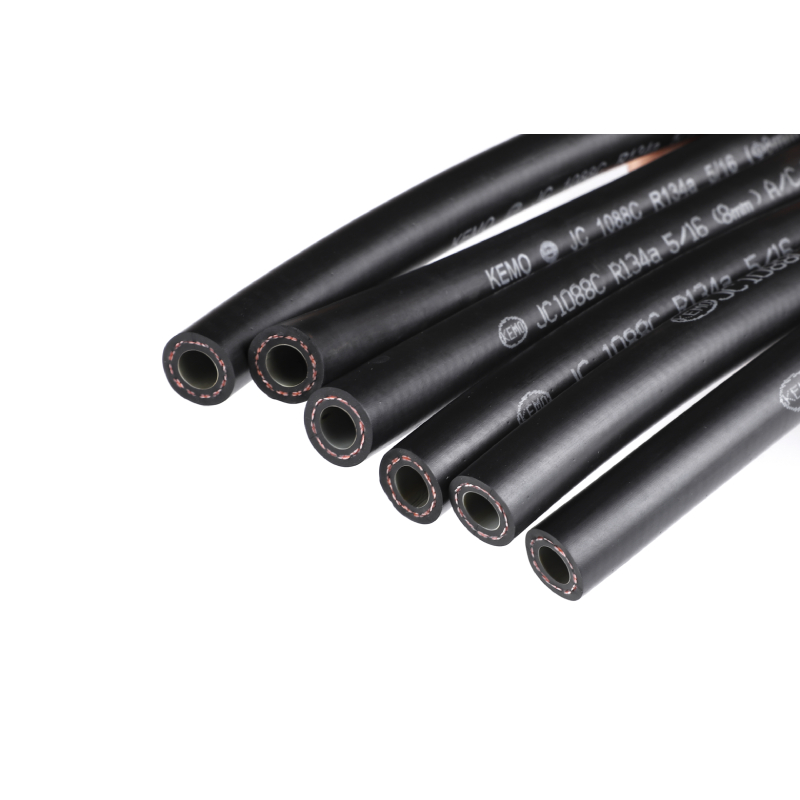car gas hose
Nov . 14, 2024 23:29 Back to list
car gas hose
The Importance of Car Gas Hoses Safety, Efficiency, and Maintenance
When it comes to the operation of vehicles, the car gas hose may not be the first component that comes to mind. However, it plays a crucial role in the safety and efficiency of your vehicle. Gas hoses, while often overlooked, are an essential part of the fuel delivery system, connecting the gas tank to the engine. Their integrity and functionality can significantly impact the performance of your car, making it imperative for vehicle owners to understand their importance, maintenance needs, and potential issues.
Understanding Car Gas Hoses
Car gas hoses are typically made of durable rubber or reinforced materials designed to withstand the aggressive nature of gasoline as well as the fluctuating temperatures within the engine compartment. They serve as conduits through which fuel travels from the tank to the engine, where it is mixed with air for combustion. This process is vital for the engine’s performance, fuel efficiency, and overall vehicle operation.
The Importance of Safety
One of the foremost reasons for maintaining the integrity of gas hoses is safety. A damaged or worn-out gas hose can lead to fuel leaks—an issue that poses significant fire hazards. Gasoline is highly flammable, and even the smallest of leaks can result in dangerous situations, including engine fires or explosions. Therefore, regular inspections and timely replacements of gas hoses are critical to ensuring the safety of the vehicle occupants and others on the road.
Signs of Wear and Tear
Recognizing the signs of wear and tear on gas hoses is crucial for proactive maintenance. Common indicators include
- Cracking or Dry Rot Over time, exposure to heat and fuel can cause the hose material to degrade, resulting in cracks or a dry, brittle texture. - Fuel Odors A strong smell of gasoline, especially when the vehicle is running, may indicate a fuel leak from the gas hose. - Visible Leaks Pooling gasoline or visible drips under your vehicle can signal a seriously compromised gas hose. - Engine Performance Issues If your engine is stalling or experiencing poor performance, a malfunctioning gas hose could be disrupting the fuel delivery process.
car gas hose

If you notice any of these signs, it’s essential to have your vehicle inspected by a professional mechanic immediately.
Maintenance Tips
To ensure the longevity and effectiveness of your car gas hoses, consider the following maintenance tips
1. Regular Inspections Periodically check your gas hoses for cracks, wear, or leaks. It’s advisable to inspect them during routine oil changes or vehicle service appointments. 2. Fuel Quality Use high-quality fuel and avoid overfilling the tank, as this can lead to excessive pressure and stress on the hoses. 3. Keep the Engine Clean A clean engine bay minimizes the risk of debris and dirt accumulating on hoses, which can cause premature wear.
4. Professional Replacement If a replacement is necessary, ensure that a qualified mechanic uses hoses that meet manufacturer specifications, as different vehicles may have varying requirements.
The Role of Technology
Advancements in automotive technology have also improved the materials used in gas hoses. Many manufacturers now utilize sophisticated composite materials that enhance durability and resistance to temperature fluctuations. These innovations contribute to increased safety and a lower likelihood of hose failure over time.
Conclusion
While the car gas hose may not be the most glamorous component of your vehicle, it is undoubtedly one of the most vital. Ensuring that your gas hoses are in good condition not only safeguards your vehicle’s performance but also protects you and others on the road. By understanding their importance, recognizing signs of wear, and performing regular maintenance, you can extend the life of these crucial components and enhance your driving experience. In the world of automotive safety, even the smallest parts can make a significant difference. So, the next time you think about vehicle maintenance, remember the car gas hose—an unsung hero supporting the heart of your car’s engine.
